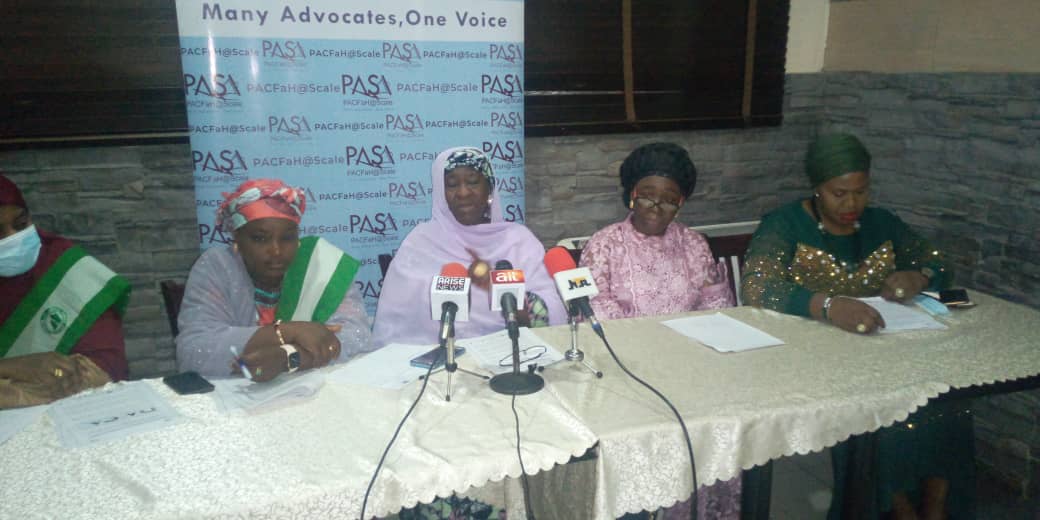Int’l Women’s Day: Coalition wants more funding for women’s health
Policymakers in the country have been urged to provide more funding for women’s health to reduce the mortality rate. The Coalition of Women in the Partnership for Advocacy in Child and Family Health at Scale, PACFah@Scale project made the call at a press conference in Ilorin on Monday. Nothing wrong with changing of party in […]

Policymakers in the country have been urged to provide more funding for women’s health to reduce the mortality rate.
The Coalition of Women in the Partnership for Advocacy in Child and Family Health at Scale, PACFah@Scale project made the call at a press conference in Ilorin on Monday.
- Nothing wrong with changing of party in politics – Kwankwaso
- FG upgrades infrastructure in 46 federal institutions
Speaking on the 2022 International Women’s Day with the theme: “Breaking the Bias: Gender Equality Today for a Sustainable Tomorrow,” Hajia Halima Ben-Umar, Project Director, said that focusing on health programmes for women of reproductive age will reduce the mortality rate prevalent among women in that category.
She lamented that though federal and state governments are developing and launching new health policies with potentially positive implications for the health of women, adequate budget provisions has not been provided.
Lamenting the high mortality rate among middle-aged women in Nigeria, Ben-Umar said; “gender equality in the health sector can only become a reality if our brothers and fathers, who are in the majority as Nigerian policymakers, think about every woman who makes up Nigeria’s extremely high maternal death rate.
“As they think about these women, they must also recall existing national policies which link safe delivery and maternal health to health timing, child spacing, family planning.
“Nigeria’s policy commitment to integrated maternal health can only be achieved through a willful government effort to provide the leadership, adequate funding, implementation guidance and incentives for responsive and cost-effective services to Nigerian women at their most vulnerable hour of need as mothers,” she said.
She added that: “We, the women leaders of civil society organisations in the PACFaH@Scale project, are concerned that in the face of a shrinking revenue base to government, the health needs of women are not being prioritized as there are no assurances of cash backing for the new policies and platforms.
“Moreover, while we are pleased to note the Federal government’s plans for Family Planning 2030 recommitment and the recent launch of the National Development Plan to 2025 as well as the National Population Policy, we remain concerned about the absence of committed funding and action plans to tease out and implement at the community level, the women-friendly components of these laudable initiatives.”
